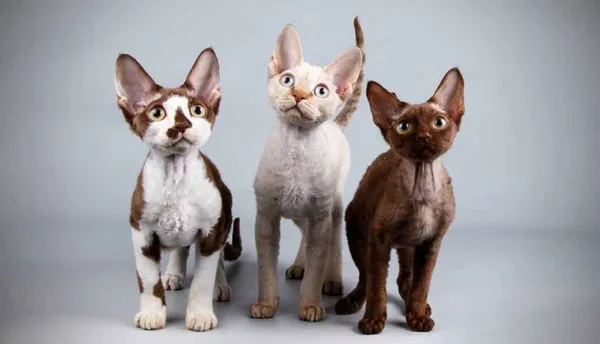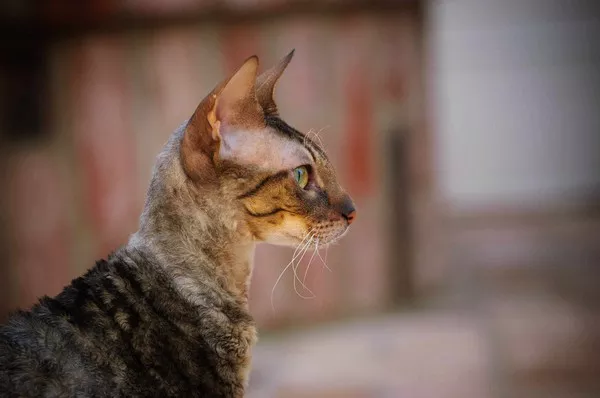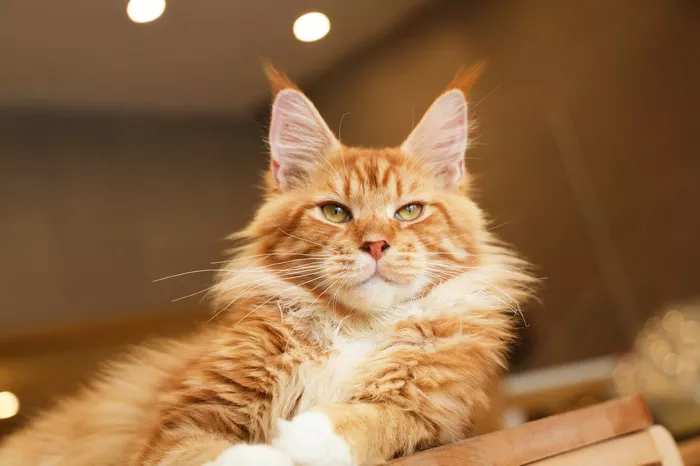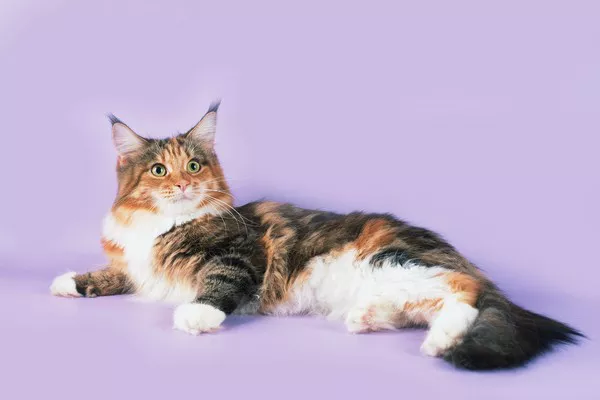The Devon Rex cat is a distinctive and enchanting breed known for its curly coat, large ears, and playful personality. While many cat enthusiasts are familiar with the general appearance and traits of the Devon Rex, fewer may realize the subtle variations that exist within this breed. This comprehensive article delves into the world of Devon Rex cats, exploring their history, characteristics, and the nuanced differences that make each one unique.
The Origins of the Devon Rex
The Devon Rex breed traces its roots back to Devonshire, England, in the late 1950s. The first Devon Rex, a curly-coated cat named Kirlee, was discovered by Beryl Cox in 1960. Initially thought to be related to the Cornish Rex, genetic testing revealed a distinct mutation responsible for the Devon Rex’s unique coat. The breed quickly gained popularity, recognized for its striking appearance and charming personality.
General Characteristics of the Devon Rex
Unique Coat
One of the most defining features of the Devon Rex is its curly, wavy coat. Unlike other breeds, the Devon Rex has a coat with less guard hair, resulting in a soft, velvety texture. The coat can vary in density and curliness, with some cats having tight curls while others have looser waves.
Large Ears and Eyes
Devon Rex cats are easily recognizable by their large, bat-like ears and wide, expressive eyes. These features give them an almost otherworldly appearance, contributing to their charm and appeal.
Playful and Social Nature
Known for their playful and affectionate demeanor, Devon Rex cats are often described as “puppy-like.” They enjoy interactive play, socializing with their human companions, and are known to form strong bonds with their families.
Variations Within the Devon Rex Breed
While the Devon Rex is a single breed, there are subtle variations in appearance, coat type, and personality. These differences can be influenced by genetics, breeding practices, and environmental factors.
Coat Colors and Patterns
Solid Colors: Devon Rex cats can come in a variety of solid colors, including black, white, blue, red, and cream. Each color can vary in intensity, and some cats may have a more vibrant hue while others display softer shades.
Tortoiseshell and Calico: Tortoiseshell Devon Rex cats have a unique coat pattern with a mix of black and red or blue and cream patches. Calico patterns include white with patches of tortoiseshell, creating a striking and colorful appearance.
Tabby: Tabby Devon Rex cats display the classic “M” marking on their foreheads and have stripes or spots on their bodies. Tabby patterns can include mackerel, classic, spotted, and ticked variations, adding to the diversity within the breed.
Bicolor and Tricolor: Bicolor Devon Rex cats have a combination of two colors, typically with one being white. Tricolor cats, also known as calicos, exhibit a mix of three colors, often with distinct patches of each color.
Coat Texture and Density: The texture and density of the Devon Rex coat can vary significantly. Some cats have tight, springy curls, while others have softer, looser waves. Coat density can range from sparse to full, with some cats exhibiting more pronounced curls than others.
Physical Traits
Size and Build: While the Devon Rex is generally a small to medium-sized breed, individual cats can vary in size and build. Some may be more slender and delicate, while others have a more robust and muscular physique.
Facial Features: The facial features of Devon Rex cats can also show variation. Some cats may have more pronounced cheekbones and a more angular face, while others have a rounder, softer appearance.
Personality and Temperament: Although the Devon Rex is known for its playful and affectionate nature, individual personalities can differ. Some Devon Rex cats may be more outgoing and social, while others are more reserved and independent. These variations can be influenced by genetics, socialization, and individual experiences.
Breeding Practices and Genetic Diversity
Importance of Genetic Diversity
Maintaining genetic diversity within the Devon Rex breed is crucial for the health and vitality of the breed. Breeders aim to avoid inbreeding and work towards expanding the gene pool to reduce the risk of genetic disorders and maintain a healthy population.
Selective Breeding
Selective breeding practices focus on enhancing desirable traits such as coat quality, health, and temperament. Responsible breeders prioritize the well-being of the cats and strive to produce kittens that meet the breed standard while also being healthy and well-adjusted.
Health Considerations
Devon Rex cats are generally healthy, but like all breeds, they can be prone to certain genetic conditions. These may include hypertrophic cardiomyopathy (HCM), patellar luxation, and hereditary myopathy. Regular health screenings and responsible breeding practices help mitigate these risks.
Caring for a Devon Rex
Grooming Needs
Despite their short coats, Devon Rex cats require regular grooming to keep their fur in good condition. Weekly brushing helps remove loose hairs and reduces the risk of matting. Additionally, regular ear cleaning and nail trimming are essential parts of their grooming routine.
Dietary Requirements
A balanced diet is crucial for the health and well-being of a Devon Rex. High-quality cat food that meets their nutritional needs is essential. Some Devon Rex cats may have sensitive stomachs, so it’s important to monitor their diet and make adjustments as needed.
Exercise and Enrichment
Devon Rex cats are active and playful, requiring regular exercise and mental stimulation. Interactive toys, climbing trees, and playtime with their human companions help keep them physically and mentally engaged.
Health Monitoring
Regular veterinary check-ups are essential to ensure the health and longevity of a Devon Rex cat. Routine vaccinations, dental care, and health screenings help detect and prevent potential health issues.
The Devon Rex in Popular Culture
The unique appearance and endearing personality of the Devon Rex have made them popular in various media and culture. From starring in movies and television shows to being featured in advertisements, the Devon Rex’s distinctive look and charm have captured the hearts of many.
Conclusion: The Allure of the Devon Rex
The Devon Rex is a captivating breed with a rich history and a wide range of variations in appearance and personality. While they are a single breed, the diversity within the Devon Rex population makes each cat unique and special. Their playful nature, affectionate demeanor, and striking looks make them a beloved choice for cat enthusiasts around the world. Understanding the nuances and variations of the Devon Rex breed enhances our appreciation of these delightful cats and underscores the importance of responsible breeding and care practices.

























